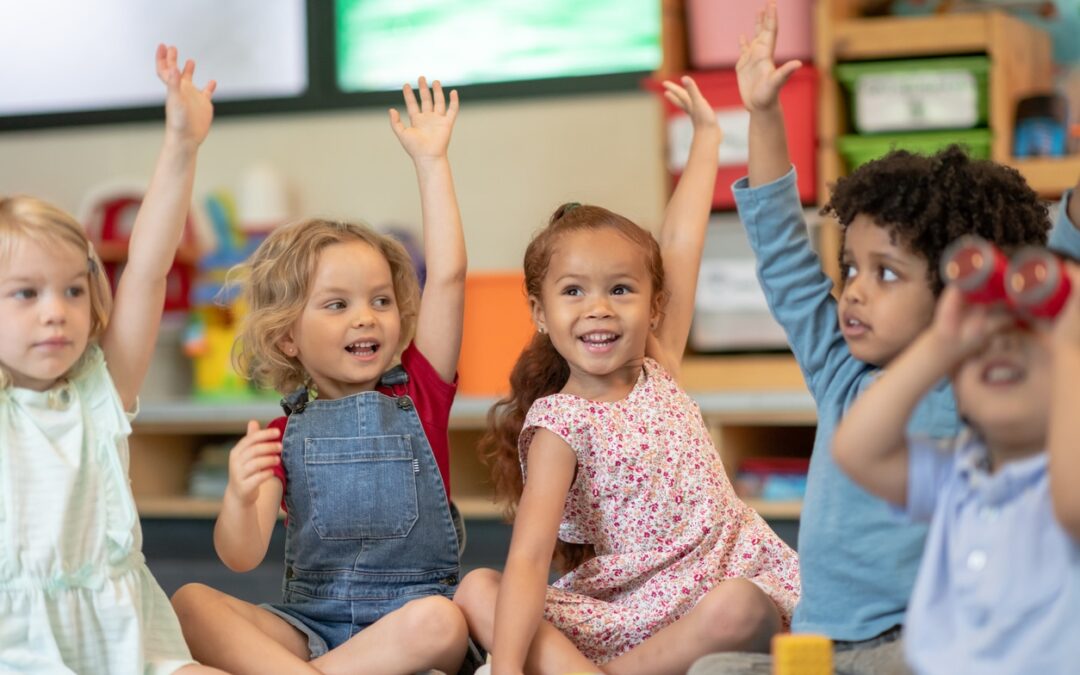Children’s joy and happiness is a big part of their learning. At Rising Stride, we encourage them to have fun as a part of their education, incorporating play into their daily learning to enhance their development.
Preschool provides an environment where your child gets to learn both academically and socially. Children who attend preschool are aged between 3 and 4 years. Children at this age undergo developmental changes that affect them socially and emotionally. Below are ways in which preschool can help children develop emotionally.
Learning To Share
Some children may not quickly learn to share since they lack siblings at home or exposure to social environments. However, in preschool, such children will be taught how to share since they will be with their peers. The items shared may be school items like books or toys. The following are some ways that teachers can implement to promote sharing among preschoolers:
- Setting time limits for playing with toys
- Modeling good behavior
- Correcting negative behaviors
Preschoolers will also get an opportunity to learn that sharing is caring. Also, they will learn that one gets more friends when they share, and since they want to make friends, they will understand the value of sharing with others.
Rules and Activities
Preschool is a structured environment with plenty of rules. This environment teaches children that they face the consequences of their actions. For instance, as a teacher, you may take their toy if they refuse to follow instructions during playtime. This will make the child sad, and they will eventually realize that to be happy, they need to follow the teacher’s rules. The following activities promote emotional development among preschoolers:
- Calm down yoga
- Learning feeling words
- Mood meter- used to express mood when the preschooler cannot identify their mood.
A well-structured preschool should be organized in a way that encourages social interaction and discourages conflict and congestion.
Learn To Help Others
Compassion is fostered in preschoolers when the teacher encourages them to help out their classmates. Helping others builds the preschooler’s sense of self-worth and competence in the process.
Examples of activities that teach preschoolers to help out include:
- Instructing a child to pass out the materials needed for the day’s curriculum/lesson
- Setting the table during snack time
- Feeding a classroom pet. In these activities, the teacher will be showing the preschooler that they are a resource for their fellow students.
Emotional Development is Critical in Preschoolers
Contrary to throwing tantrums as they did when they were two years old, preschoolers aspire to be independent and curious about various aspects of their lives. Emotional development is a critical area that preschoolers require most to prepare to start kindergarten and expand their social experiences. A healthy preschool environment can help children develop emotionally.
Rising Stride’s Kaplan’s Learn Everyday Curriculum
We follow Kaplan’s Learn Every Day Curriculum, a comprehensive program designed to give children the social and emotional stimulation they need to progress in their education.
The program includes 19 areas of exploration, designed to give children the foundation they need as they progress through their education. Our range of activities includes multi-sensory activities, exploration, and experiential learning. The focus is on allowing children to experience everything they can of the world around them, exploring with the support of our amazing team members.
Our classroom arrangements and activities are intentionally designed to meet the needs of each individual child, as well as the collective group. We provide engaging materials based on the children’s natural interests. This ensures they are engaged in the learning environment and encourages all children to participate in activities.

